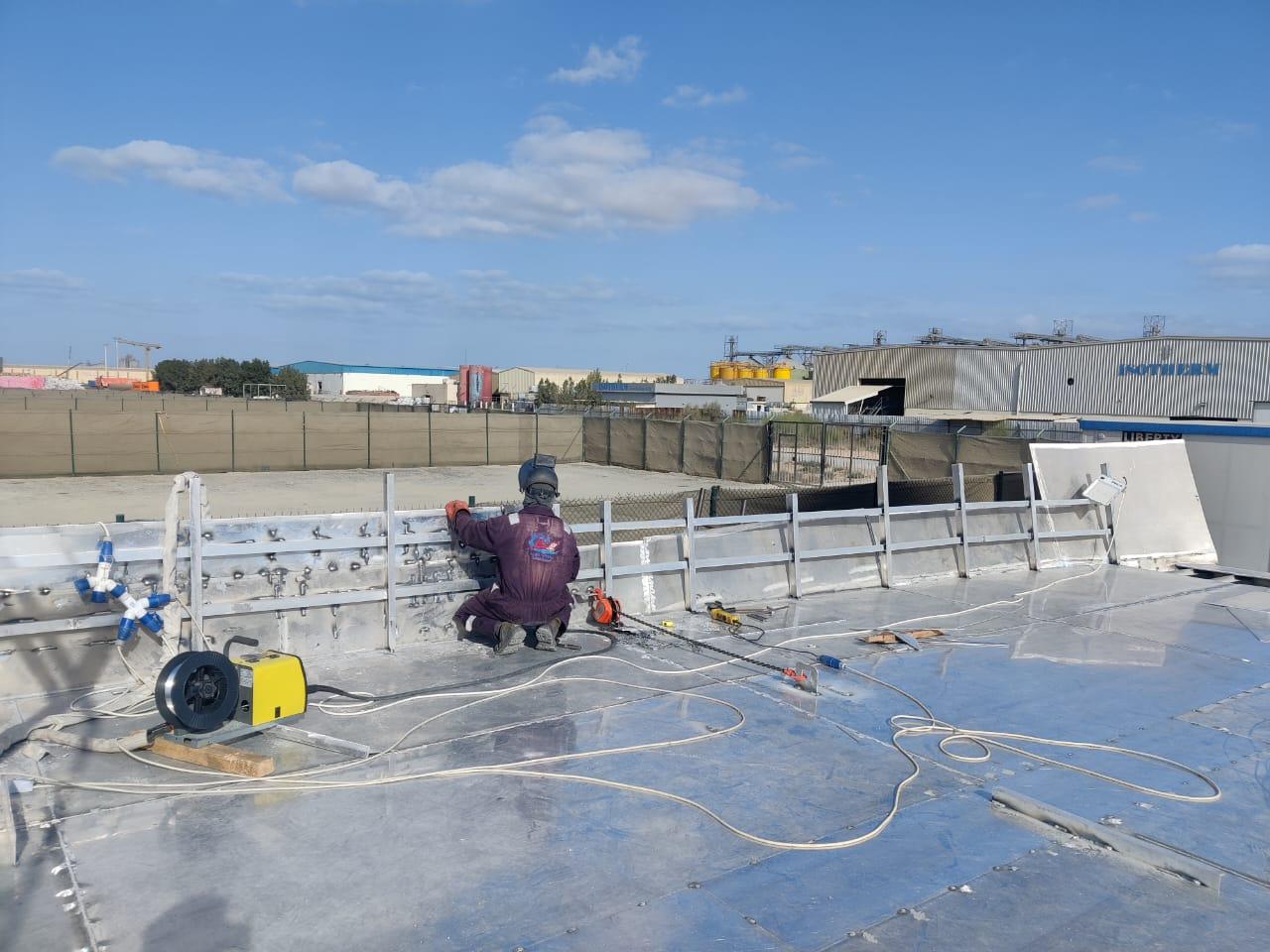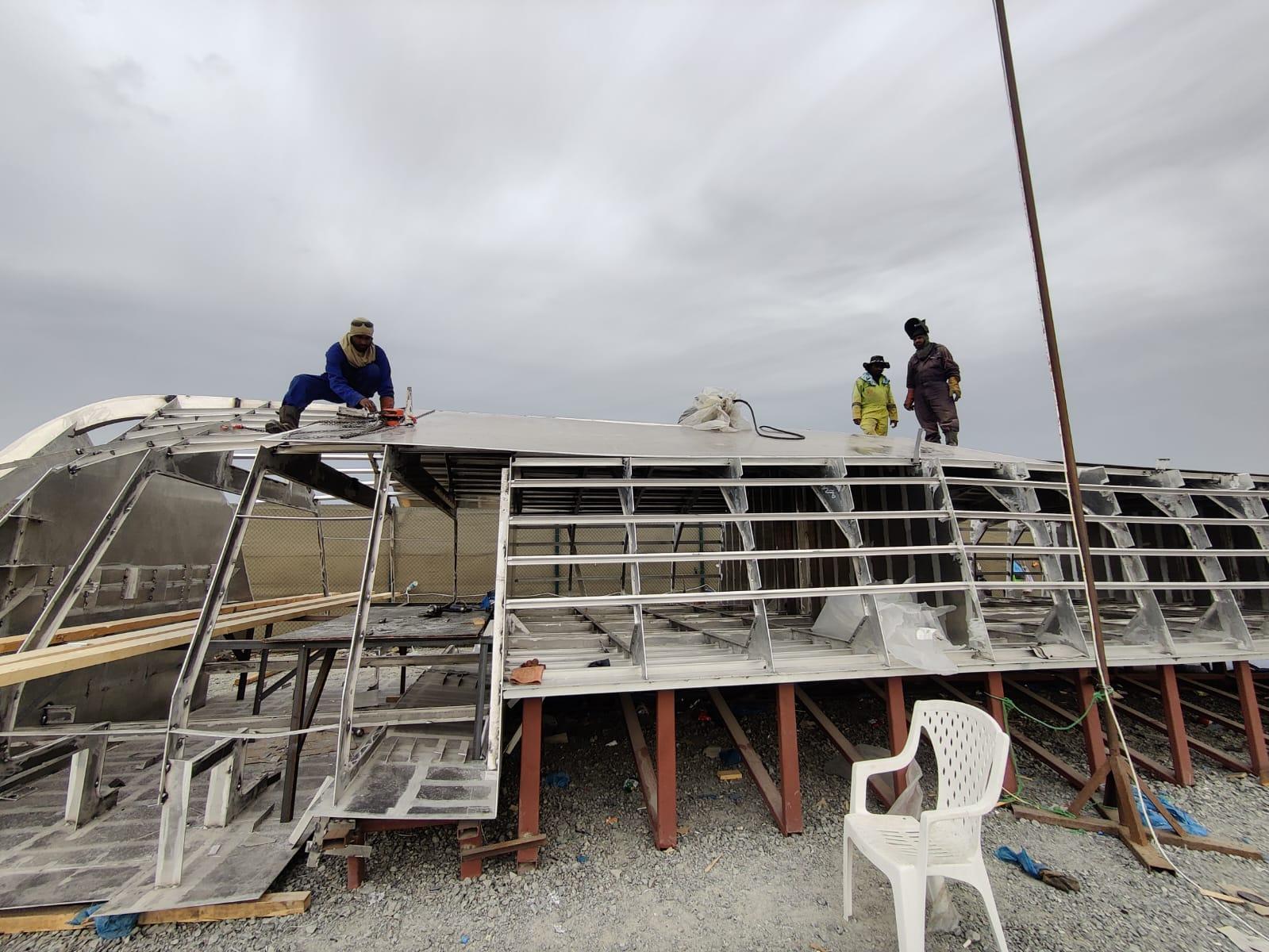Aluminium Tug Manufacturers: Crafting Stronger, Lighter Marine Vessels

Introduction: Tugboats, Reinvented for a New Era
Tugboats have long been the unsung heroes of the maritime world pushing, towing, escorting, and rescuing vessels far larger than themselves. They’re built for grit. But increasingly, they’re also being built for agility, speed, and sustainability.
Enter aluminium.
From shipyards in Northern Europe to the Arabian Gulf, aluminium tug manufacturers are leading a quiet revolution, engineering vessels that are not only tough enough to do the heavy lifting, but light and nimble enough to thrive in modern marine environments. It’s a shift that’s already reshaping operations for marine service providers in UAE and around the world.
This article explores why aluminium is fast becoming the preferred material for tugboats, what makes a well-built aluminium tug exceptional, and why the UAE is emerging as a hotspot for next-gen marine manufacturing.
Why Aluminium? The Metal That’s Reshaping Marine Design
Aluminium isn’t just a weight-saving material, it’s a performance enhancer. Unlike steel, aluminium doesn’t rust, and it offers a strength-to-weight ratio that opens up design possibilities previously off-limits for tugboats.
Top Benefits of Aluminium in Tugboat Construction
-
Corrosion Resistance
Aluminium naturally forms an oxide layer that protects it from the harsh effects of seawater, especially in high-salinity regions like the Arabian Gulf. -
Weight Reduction
Aluminium hulls are significantly lighter than steel, resulting in higher speed and better fuel efficiency, crucial for tugs operating multiple missions per day. -
Lower Maintenance
No rust means fewer repainting cycles, less structural wear, and lower long-term maintenance costs. -
Design Flexibility
Aluminium’s malleability allows manufacturers to create custom hull shapes and modular deck setups faster and more affordably than with steel. -
Sustainability
Aluminium is 100% recyclable, and when paired with hybrid propulsion systems, aluminium tugs help operators meet tightening emissions regulations.
The UAE Advantage: Building Smarter Tugboats
The UAE has rapidly evolved into a center of excellence for marine innovation. With sprawling ports, a dynamic offshore sector, and a national push toward sustainable infrastructure, the country offers fertile ground for cutting-edge vessel design.
Several shipbuilding companies in UAE are now specializing in aluminium tug construction, creating vessels tailored for the Gulf’s shallow waters, high temperatures, and intensive workloads.
“Aluminium has changed the way we think about tug design,” notes a senior naval architect at a leading ship manufacturing company in UAE. “It’s not just about saving weight. It’s about building vessels that are faster, cleaner, and smarter, without compromising strength.”
Aluminium vs. Steel Tugboats: A Quick Comparison
| Feature | Aluminium Tugs | Steel Tugs |
|---|---|---|
| Weight | Lighter | Heavier |
| Fuel Efficiency | Better | Moderate |
| Corrosion Resistance | High (natural) | Requires coatings |
| Maintenance | Low | High |
| Design Flexibility | High | Moderate |
| Build Time | Faster (due to ease of fabrication) | Slower |
| Lifespan | 25–35 years (with less upkeep) | 25–40 years |
Inside a Next-Gen Aluminium Tug: What Makes It Special
1. Hybrid Propulsion Systems
Many new aluminium tugs are fitted with diesel-electric or battery-assisted engines. These systems reduce emissions, lower fuel costs, and allow for quieter operation in ports, critical in noise-regulated environments.
2. Shallow-Draft Hulls
Thanks to the lighter structure, aluminium tugs can operate in shallower waters. This is a game-changer for operators servicing dredging projects, construction barges, or small harbors.
3. High Bollard Pull in Compact Designs
Aluminium enables more efficient hull lines, letting manufacturers deliver high bollard pull in smaller, more maneuverable frames.
4. Custom Superstructures and Deck Layouts
Whether it's a firefighting system, oil spill response gear, or towing winch configurations, aluminium allows for high modularity without structural compromise.
Use Case: Aluminium Tugs Supporting Marine Services in UAE
In 2023, a well-known marine services provider in UAE upgraded part of their tug fleet to aluminium-hull vessels. These tugs were deployed across several ports and offshore support zones.
Results After 12 Months of Operation:
-
18% drop in fuel consumption per operating hour
-
30% fewer maintenance hours, particularly related to hull cleaning and repainting
-
Improved maneuverability, especially in shallow and sediment-heavy waters
-
Zero corrosion-related downtime
This investment not only boosted performance but aligned with regional ESG goals, as aluminium tugs contributed to reduced carbon emissions.
Top 5 Features to Demand from an Aluminium Tug Manufacturer
| Feature | Why It Matters |
|---|---|
| Marine-Grade Alloys (5000/6000 Series) | Offers structural integrity and corrosion resistance |
| Certified Welding Techniques | Ensures hull strength under high-stress conditions |
| Hydrodynamic Hull Design | Improves fuel efficiency and maneuvering |
| Hybrid or Tier III Engines | Compliance with international emissions standards |
| Custom Deck Configurations | Tailored to specific operations (towing, rescue, fire) |
Design Challenges with Aluminium and How Experts Overcome Them
Aluminium isn’t without its quirks. Welding must be precise. Metal fatigue must be accounted for. And unlike steel, aluminium has a lower melting point, requiring careful fire safety design.
Smart Solutions from Expert Builders:
-
Advanced Simulation Tools
Many ship building companies in UAE now use finite element analysis and digital twin simulations to test fatigue performance before builds begin. -
Dual-Layer Hull Reinforcement
Especially in tugs designed for harsh offshore conditions, manufacturers incorporate reinforced aluminium sections or hybrid (aluminium-steel) builds. -
Non-Combustible Insulation Materials
Fireproofing is handled through specialized insulation and fire suppression systems, ensuring safety without adding unnecessary weight.
FAQs About Aluminium Tugboats
Q: Are aluminium tugs as strong as steel tugs?
A: Yes, when designed properly. While aluminium is technically softer, marine-grade aluminium alloys and modern engineering compensate with structural reinforcement and smart design.
Q: Do aluminium tugs last as long as steel ones?
A: They can last 25–35 years or more, especially in warm climates like the UAE, where salt corrosion is a bigger issue for steel vessels.
Q: What’s the typical draft for an aluminium tugboat?
A: It varies, but many aluminium tugs have drafts under 2.5 meters, making them ideal for shallow-water operations.
Q: Are aluminium tugs more expensive?
A: The upfront cost may be slightly higher than steel, but the reduced fuel use, minimal maintenance, and lower long-term ownership costs often make them more economical.
Opinion: Why the Future of Tugs Is (Literally) Lighter
The marine industry isn’t just changing, it’s evolving. From automation and digital navigation to low-emission propulsion, every part of the equation is moving toward smarter, leaner, more efficient vessels.
Aluminium tugboats fit perfectly into that picture. They’re faster to build, easier to maintain, and more flexible in design. For forward-thinking shipbuilding companies in UAE, the message is clear: lighter doesn’t mean weaker. It means smarter.
As fleet owners face growing pressure to reduce emissions, lower fuel costs, and increase versatility, aluminium may just be the silver bullet.
The UAE’s Role in Global Tugboat Innovation
With its mix of world-class shipyards, demand for port and offshore support vessels, and a clear vision for green maritime infrastructure, the UAE is uniquely positioned to lead in aluminium tug manufacturing.
Across the Emirates, ship manufacturing companies in UAE are already delivering vessels for local and international clients alike, setting benchmarks in build quality, delivery speed, and design sophistication.
Whether it’s serving major port expansions in Abu Dhabi or supporting floating LNG terminals in the Gulf, these tugs are proving their value daily.
The Final Word: Why It’s Time to Rethink Tug Design
If you’re sourcing tugboats today, ask yourself: Are you buying steel out of habit or aluminium out of strategy?
Modern aluminium tugs deliver performance without the price tag of long-term upkeep. They’re better suited for the fast-paced, high-pressure, and environmentally regulated world marine operators now face.
Whether you're a port manager, part of marine services in UAE, or running offshore supply chains, switching to aluminium tugs could be one of the smartest operational decisions you make this decade.
- Vibnix Blog
- Politics
- News
- Liberia News
- Entertainment
- Technology
- Educação
- Art
- Causes
- Crafts
- Dance
- Drinks
- Film
- Fitness
- Food
- Jogos
- Gardening
- Health
- Início
- Literature
- Music
- Networking
- Outro
- Party
- Religion
- Shopping
- Sports
- Theater
- Wellness




